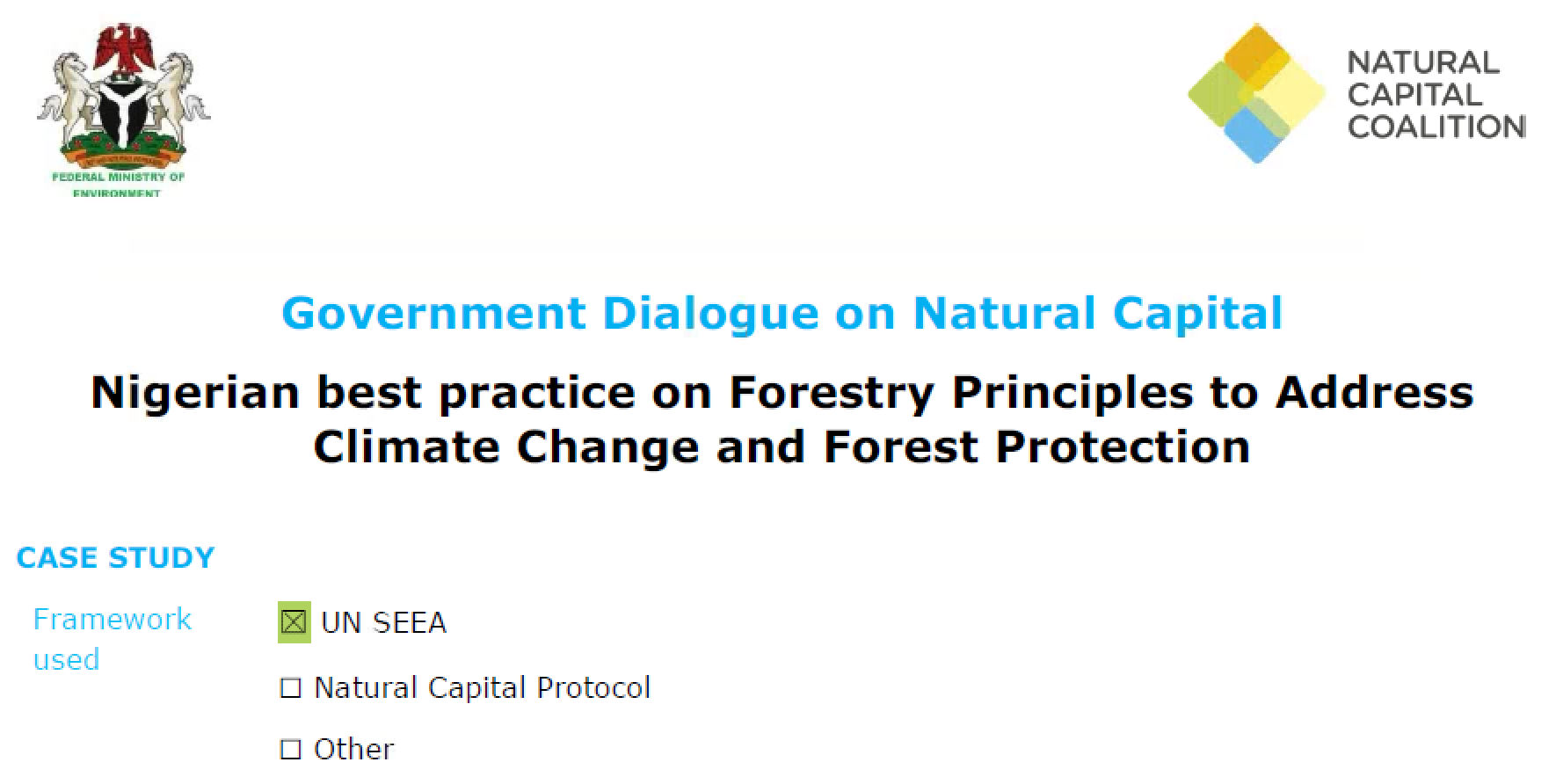The organization/ department in brief
GLOBE International, University College London, London Federal College of Forestry, Jos Nigeria and Federal Ministry of Environment, Nigeria with funding from the MAVA foundation.
Why was this undertaken?
According to the Inclusive Wealth Report of 2012, there has been a significant change in Nigeria’s natural capital. The country has experienced a significant decline in natural resources since the early 1990s. In the past two decades, 41% of the country’s forest resources were destroyed, which led to increased desertification, gully erosion, and coastal erosion.
The depletion of non-renewable resources accounted for about 25% of its GDP in 2013, i.e. the country is particularly reliant on its non-renewable resources. Energy-intensive economic growth causes environmental pressures on the country’s natural capital base.
Such pressures lead eventually to risks for human health, the environment and the livelihoods of local communities in general. Nigeria is close to total economic dependence on oil resources, potentially leading to systemic economic risks for the country.
What was the scope?
The natural capital elements assessed were: forests; land and water.
Environmental pressures have changed over recent years as the population of the country continues to grow, while the total area of natural habitat decreases and the range of wildlife becomes increasingly restricted. Ecosystem’s health and resilience are put at risk by uncontrolled deforestation, and the environmental impacts of the extraction of non-renewable resources.
However, the country also faces threats generated externally, such as climate change. Climate change affects the availability of water resources in particular, affecting power generation and agriculture.
The urgent need to develop effective methods and measures for natural capital accounting and to embed these within relevant legal and policy frameworks. The objective of the study was designed to inform efforts by legislators to address these needs.
What was the role of the Government?
Nigeria collaborates with international organizations in order to develop and improve existing natural capital accounting frameworks. It receives technical and financial assistance from the World Health Organization and the UNDP.
Nigeria has made efforts to integrate natural capital information into the formulation of national environmental policies and laws.
Given the urgency of protecting forest resources, natural capital accounting has become an integral part of national laws and policies on sustainable forest management.
Based on natural capital accounting, Nigeria managed to design and apply a regulatory basis for private sector forest management agreements. This was achieved through setting the framework for technical standards for private sector forestry in order to ensure better legal provisions and to also encourage long-term investment. Based on sustainable forestry principles, Nigeria aims at regulating reforestation and forest protection.
Nigeria supports regional initiatives to find common solutions to common problems. Under the direction of Nigeria, a feasibility study about the potential contribution of re-channelling the Ubangi River in Central Africa into the Chad basin under the Inter-basin Water Transfer Scheme was conducted, to which Nigeria contributed USD 5 million out of USD 6 million required for the study.
What were the results?
There are five different organizations which collect, manage and process information on Nigeria’s natural capital, namely the Forestry Research Institute of Nigeria; Federal Ministry of Environment; Nigeria Bureau of Statistics; Central Bank of Nigeria; and the Federal Environmental Protection Agency. Nigeria is currently undertaking a multi stakeholder project to strengthen the documentation, communication and dissemination of information related to the physical impact of climate change, adaptation and mitigation.
Civil society organizations and local communities are an important part of enhanced cooperation regarding information sharing. Additional information is also shared with the public and commercial sector. This includes information on REDD+ mechanisms; the ‘Green Great Wall’ initiative on desertification; and environmental impact assessment. Even though there is willingness in Nigeria to integrate natural capital accounting into policy and decision-making, the accounts do not include material flows through the economy. Tracing back these material flows is an important tool to assess the physical consequences of human activities and needs, a way to quantify flows of stocks of materials and other substances. Despite the involvement of the Nigeria Bureau of Statistics and the Central Bank of Nigeria, natural capital accounting data and indicators are not used in the country’s budgetary processes. Nigeria still lacks functional environmental statistics on continued environmental degradation.
Next steps
- Technical assistance to support functional environmental statistics on continued environmental degradation in Nigeria.
- Development of guidance for the public sector and support for a multi-stakeholder workshop for sub-national and local governments.
- Innovative ways of diversifying our economy in order to reduce the dependence on global fossil fuel demand and to protect the local environment endangered by national oil production.
- Possibilities of exploring how to connect the progress on positive net impact with natural capital.
- Support the development of programs focusing on increasing public awareness and community engagement.
Other comments
Despite the legal and policy framework Nigeria put in place, implementation needs to be improved. Current policies and laws do not sufficiently address the challenges arising from rapid population and consumption growth. Currently, natural capital accounts do not capture the full complex interactions between the environment and economy. While timber resources, for example, are accounted for, other resources of forests such as non-timber products, carbon sequestration and air filtration are not taken into substantial consideration. This leads to incomplete information about the consequences of economic activity, performance and wellbeing.













